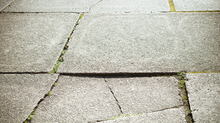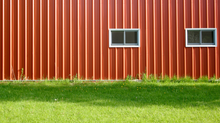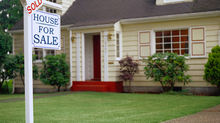Your Winter Preparedness Checklist
Wyomingites have a lot of experience with harsh winter weather. Extreme cold, freezing rain, ice, snow, high winds...they're no match for our toughness. And yet, it doesn't hurt to be prepared!
Advance planning can make a big difference in one's safety during a winter storm, as well as one's ability to quickly recover afterwards. Winter storms can cause power outages that last for days, make roads dangerous or impassable, and affect critical community services.
The best thing you can do is make sure you are prepared to be self-sufficient for a few days (if not more), protecting your family and your assets in the midst of it all. Here's what you need to do.
First, stay informed.
Sign up for local weather warnings through the National Weather Service to ensure you hear of any hazards ahead of time.
Download the FEMA and American Red Cross apps. These provide information about finding shelter, administering first aid, and seeking recovery assistance.
Learn the difference between Weather Advisories, Winter Storm Watches, and Winter Storm Warnings. You can view the definitions here.
Second, gather emergency supplies.
Gather in advance the supplies and items you will need to stay safe until the storm passes. Remember: you may not be home when the storm starts, so it's important to have food, water and basic supplies in several locations (work, home, your car, etc.).

Make sure you have:
Emergency communication (cell phone, external charger, walkie-talkies)
Prescription medications, including inhalers, insulin and backup power for power-dependent mobility devices, oxygen and other assistive technology
Critical documents in a sealed, waterproof container
Tools and safety items (matches, flashlights, a multi-tool, pocket knife, and whistle is a good start)
Food and water for at least three days without access to normal services
Warm clothing and blankets (and don't forget protective footwear and gloves!)
For your car, check your:
Antifreeze and oil levels
Battery and ignition systems
Brakes
Exhaust system (carbon monoxide can be fatal)
Fuel and air filters
Heater and defroster
Thermostat
Lights and hazard lights
Tires
Windshield wiper equipment
Third, develop a communications plan.
Before a storm hits, it's crucial that your family know how they will get back in touch after it clears. Remember, you might not always have access to your cell phone, so keep important numbers written down in your wallet, in case you can't access your contact list.
Fourth, protect your home.
The last thing you want to be dealing with in the midst of a winter storm is property damage, particularly flooding. Most property insurance companies don't cover flood losses, so you'll need to purchase separate flood insurance if you anticipate any flooding due to snow melt.
But that's not all you should be aware of! Check out our guide for properly winterizing your home, so you don't find yourself addressing busted pipes or a fire while also waiting out a blizzard.
Are you ready for a winter storm? How have you prepared your family for the worst?























